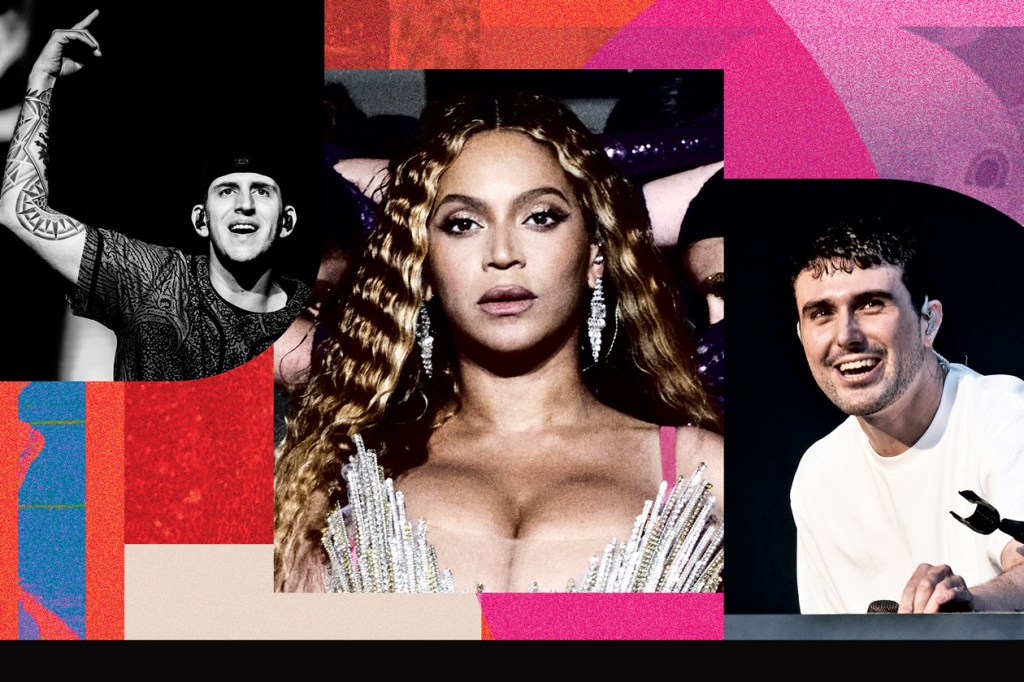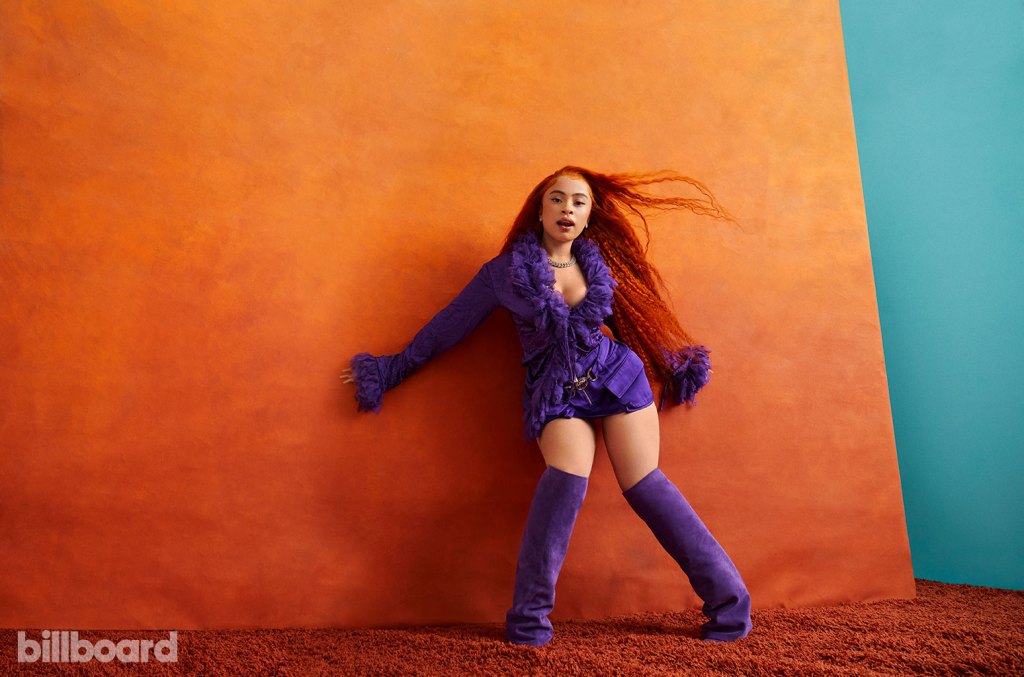What Mini-Residencies, And Major Stadium Shows, Taught Us About the Future of Dance Music

In February, Fred again.., Skrillex and Four Tet turned New York’s Madison Square Garden into a sweaty rave, performing a body-rattling five-hour show that had sold out in two minutes and, in some ways, set the tone for dance music in 2023. The demand proved the trio to be a perfect replacement for Frank Ocean as Coachella’s Sunday night headliner on its second weekend. And by October, Fred again.. had sold 42,300 tickets and grossed $2.9 million across a three-night residency in New York, according to Billboard Boxscore, later playing an eight-night run in Los Angeles.
“We been practising for monthssss to try n make this show a level up and to like really push ourselves to make it as musical and dynamic and LIVE as possible,” Fred again.. posted on Instagram.
Fred again.., now nominated for a best new artist Grammy, became a bigger star in 2023, but he was far from the only one cashing in on the post-pandemic return to live events. In June, future bass star Illenium played Denver’s Mile High Stadium, selling 47,300 tickets and grossing $3.9 million. Meanwhile, Beyoncé toured the globe on her dance album, Renaissance, selling 2.8 million tickets worldwide. And live electronic maestros ODESZA led the festival circuit, headlining Bonnaroo, Governors Ball and Outside Lands.
“There have been all these moments where I realized that electronic music from a live standpoint is in an incredibly healthy place,” says Lee Anderson, executive vp/managing executive at Wasserman, who represents electronic acts including Skrillex, Zedd and Disclosure. “It might be bigger than it has ever been, including the EDM boom.”
This surge has origins in the pandemic, when dancefloors were vacant. Prior to 2020, dance shows had declined “from the late 2010s from a ticket-buying standpoint and on the live side,” Anderson says. This was the same era in which house music was replacing EDM as the mainstream dance genre of choice in the United States.
But as artists turned to livestreaming during lockdown, dance music became particularly accessible, given the ease of streaming DJ sets. The sound proliferated on Twitch and other platforms at the same time that a new generation of fans were coming of age — and when live events returned, they wanted to dance. “You had a whole new generation of kids that were like, ‘Oh, my God. What is this? I want to get out of the house and go,’ ” says Anderson.
The pent-up demand drove ticket sales at dance shows across the United States, and by 2022, Anderson says, “I was talking to people at Live Nation and AEG like, ‘The electronic stuff is selling really well.’ We looked at the data and realized this genre was heating back up.”
Contributing to the rise was the general expansion of the U.S. dance market. While there used to be roughly a dozen cities in which techno artists could play, Anderson says there are now 30. Beyond major markets like Miami, New York and Los Angeles, there are now thriving U.S. hubs for bass, commercial dance, trap, house and other styles in cities including Denver and Phoenix. (Anderson says that artists’ social engagement is the best indicator of where they’ll be able to sell tickets.) Meanwhile, festivals that were formerly booking three or four dance acts are now booking four times that many.
While the current dominance of house music has delivered greater levels of live success to veteran artists — Anderson cites Chicago legend Green Velvet as a prime example, saying he is “probably bigger than he has ever been” — fresh acts are also rising. After playing their first major shows earlier this year, San Diego bass producers ISOxo and Knock2 performed four sold-out shows at The Shrine in L.A. in November.
“Between the two of them, the highest-streamed song has about 13 million plays,” Anderson says. “These are not huge numbers, but they sold out 20,000 tickets in L.A. as fast as the cart could process transactions — and we had enough people in the queue that if the venue was available, we could have done another four [nights].”
Such residencies and one-offs are also indicative of the newly preferred style of touring for dance acts, with teams often putting on a small number of shows that feel special — and which fans are more likely to travel for — rather than grinding it out on the road. Illenium’s stadium show demonstrated the viability of this model (the act will play two more at SoFi Stadium in L.A. in February 2024), as did a set by FISHER and Chris Lake in October, when they shut down a stretch of Hollywood Boulevard and drew 12,000 fans. (Anderson calls the show “one of the biggest stories in dance music this year.”) Pretty Lights’ comeback tour featured a series of short residencies, with 27 shows across nine venues. And on Dec. 16, John Summit will headline the 22,000-capacity BMO Stadium in L.A. — a type of show that Kx5 proved viable last December, when it played for 46,000 people at the L.A. Coliseum.
“When you had the [EDM bubble] era of, ‘Can it ever be that big again?,’ did you see electronic artists selling out stadiums as headline acts?” Anderson asks. “Because that’s happening today, and you’re going to see that continue happening. And that has never happened before. That’s new.”
This story originally appeared in the Dec. 9, 2023, issue of Billboard.
Link to the source article – https://www.billboard.com/music/concerts/beyonce-fred-again-dance-live-music-2023-success-analysis-1235547556/
Recommended for you
-
AKAI Professional LPD8 – USB MIDI Controller with 8 Responsive RGB MPC Drum Pads for Mac and PC, 8 Assignable Knobs and Music Production Software,Black
$59,00 Buy From Amazon -
Vangoa Banjo 5 String Full Size with Portable Concert Banjo Ukulele Beginner Kit
$0,00 Buy From Amazon -
KRK Rokit 8 G4 White Studio Monitor Speaker Bundle – Pair
$499,98 Buy From Amazon -
CME U6MIDI Pro – MIDI Interface with Router, Mapper, and Filter – Plug-and-play USB MIDI for computers – Standalone 3-in-3-out MIDI for Merge, Split, Thru
$49,99 Buy From Amazon -
PreSonus Temblor T10 Powered Studio Subwoofer – Free Cables XLR and 1/4 – (ProSoundGear Authorized Dealer)
$449,99 Buy From Amazon -
Fender Acoustic Bass Guitar, 4-String, Kingman V2 with Fishman Bass Acoustic Guitar Pickup with Tuner, Equalizer and Phase Control
Buy From Amazon -
Left Handed Ukulele Fretboard & Easy Beginner Chord Chart Instructional Poster for Soprano Concert Tenor Uke
$12,99 Buy From Amazon -
Ashthorpe 3-Piece Complete Junior Drum Set – Beginner Kit with 14″ Bass, Adjustable Throne, Cymbal, Pedal & Drumsticks – Red
$103,99 Buy From Amazon













Responses